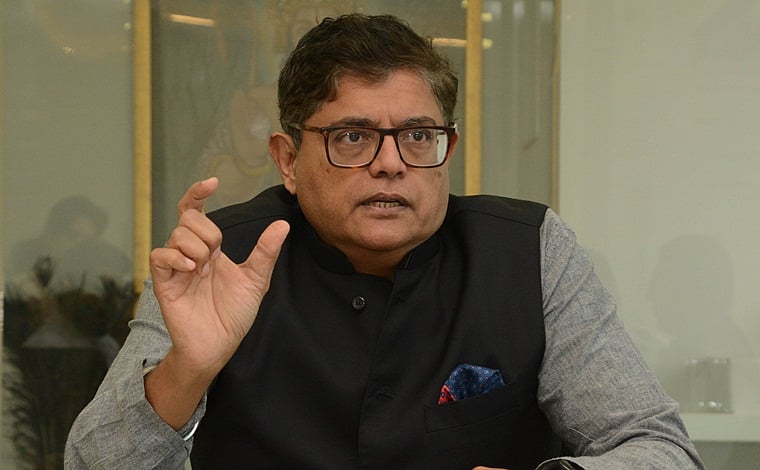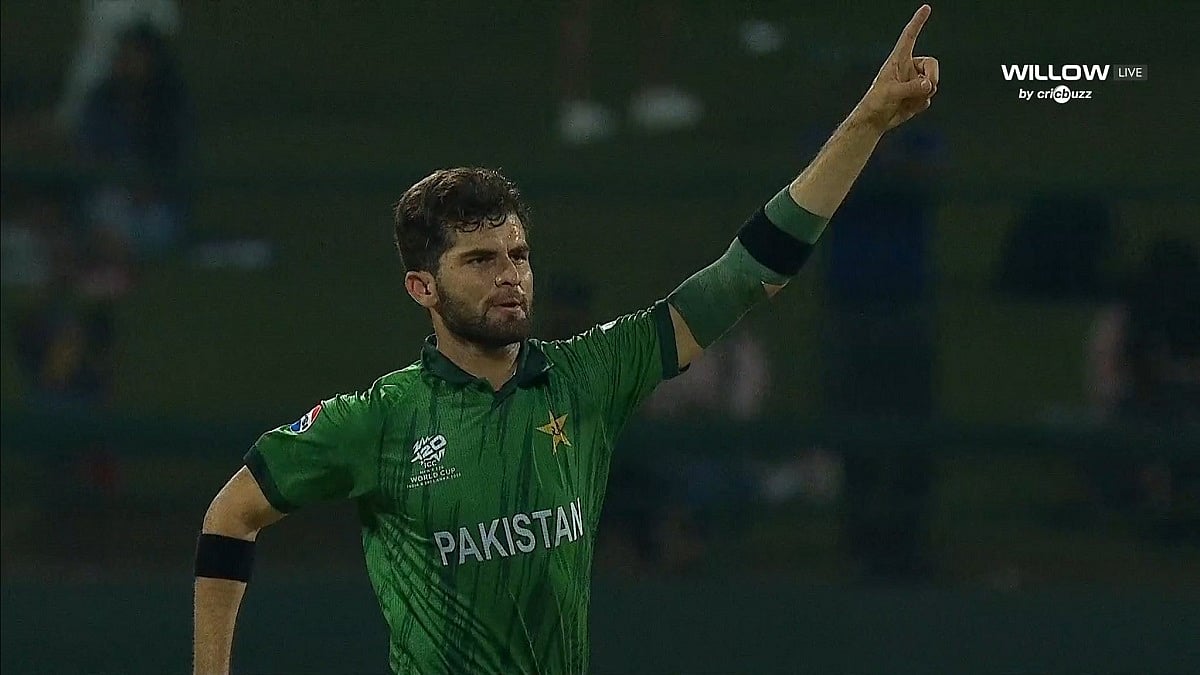Edited excerpt
How do you respond to the charge that the CAA is unconstitutional and goes against the secular fabric of the country? How would you allay the fears of Muslims who have strong apprehensions about the law?
There are different categories of people who are protesting or objecting, and they have a different understanding and different motivation. I would urge them to please go into the depth of the issue. If you look at it superficially, they are trying to spin it by asking `why should one religion be excluded from this?’.
It’s fairly common among democracies in the world to provide fast-tracked sanctuary to religious minorities who have been persecuted. For instance, in the US, the 1989 Lautenberg Amendment provides a sanctuary to religious minorities in Russia and few other places refuge – and these minorities were specified.
There is a common and well-established principle, that when dealing with refugees and illegal immigrants, those escaping persecution are given more accommodation than those who are seeking economic sanctuary. It has nothing to do with Muslims or Hindus or anybody in India.
Why leave out certain communities like the Ahmadiyyas in Pakistan? Also, the Home Minister has linked CAA and NRC in the Parliament on multiple occasions.
The fear is that when seen together, the CAA gives a shield to other communities to get citizenship even if they are left out after the NRC, an option that Muslims won’t have recourse to.
CAA has gone with basic criteria that nobody can question. You can have different levels of deciding what is persecution. The very basic requirement is – is the Constitution of that country neutral or theistic. These three neighbouring nations (Pakistan, Afghanistan and Bangladesh) are theistic nations.
Their Constitution gives primacy to one religion. By definition, a theistic Constitution discriminates against all but one religion. You can say that they will be protected, but in fact, they are not.
Because by definition, it makes you a second class citizen. This is the easiest way that should leave no scope for controversy.
While the government now says that there is no movement on the NRC, if it does happen later, the concern still remains that Muslims, who do not have the necessary documentation, will not be able to seek citizenship under the CAA, while other communities may?
NRC and CAA have never been part of the same legislation. In the past also, you had CAA, you also had NRC. Nobody made this argument before. When Dr Manmohan Singh was making the argument in the Rajya Sabha, nobody said anything about CAA in Assam.
It’s plain unfair to say -`These are self-proclaimed secularists so their intent is okay. We say you’re communal and your intent is wrong, so it’s wrong.’ It’s illogical.
What about fears that the poor and illiterate will face a harrowing task to prove their citizenship as many of them may not have necessary documentation?
The NRC is today not on the table. When a formal proposal is made for NRC, it should tackle all these concerns. The timing of the CAA and talk of NRC is being seen as a ploy at polarisation ahead of the elections in West Bengal. Your response?
This is the inconsistency of logic that I’m speaking about. Like Assam, Bengal has had a huge amount of demographic change by some people who are persecuted, undoubtedly, but also by many who are not persecuted and looking for economic opportunities.
There are many people in Bengal who do want NRC. If you do a survey, I would predict that you would have a larger percentage of Bengalis wanting NRC than average India.
But the point is, you can’t make a diametrically opposite claim about us doing the exact thing that somebody else was doing.
Why does India need CAA and at what cost? The Act is essentially for foreigners, and at what cost is the government going to implement the Act. On humanitarian grounds, persecuted foreigners can be allowed refuge here, but why grant citizenship?
Until the late 90s, India was an aid receiving country. Over the last 20 years, India has become an aid giving country. It’s not a black and white option. Just because we have not solved all our problems, we should not be blinkered and not look beyond. Apart from humanitarian grounds, we have a moral obligation.
What about states that have said they will not implement CAA? An MP from your party has said Presidents Rule can be imposed in states that are opposing CAA.
I don’t want to make a comment on anyone’s specific comment. It’s unconstitutional if a state were to say that it will not implement a federal law.
This is a misuse of the word federalism. Some try to interpret it as the Union government should keep its hands off and let the states do what they want.
That is one part of federalism. The other side of the coin is that whatever is a Union subject, the states have to keep their hands off. If the states start dictating defence policy or foreign policy, the country cannot survive as a republic. When states say that they will not implement a Parliament Act, they are not being federalist.
What happens if the states continue to resist implementation of CAA?
There is a system in place, a Constitution that is above all. There are courts and parliament. Many statements are made for political grandstanding, and are not made with serious intent about what they (the states) are going to do.
Allowing them a little elbow room to do their grandstanding doesn’t bother anybody. But the law of the land must prevail.
Speaking about moral obligation, how would you respond to the charge that because of the situation in Kashmir after the abrogation of Article 370, along with CAA and NRC, India faces international isolation?
I disagree. Article 370 was the only one that had the word `temporary’ in front of it. More than 550 princely states were all put under the same system.
The freedom struggle happened over a very long time. It was not arbitrary, but the finally accepted solution by everybody. It was distasteful to many, but the same rules applied.
It was odd that we agreed to a special status for J&K, because we have never believed in the Two Nation Theory. Demographics can be anything, but the rules must be the same for everybody. At some point or the other, almost every party has accepted in the Parliament that Article 370 must go.
Do you agree that the police in Delhi and UP completely mishandled the manner in which it tackled the protests against CAA and NRC?
Some people went to the SC to ask them to intervene with the Delhi police, because the police had gone into Jamia and used strong arm tactics.
The SC said, “We are not going to intervene, we may examine it later but the violence has to stop.”
When there is violence, you can’t say that the police has to hold back. The police has to do it’s job, which is not always pretty. The police’s job is to maintain law and order.
But how is it okay for the police to enter Jamia’s library and fire tear gas shells?
People who are protesting the police actions are protesting one side of it. This action did not happen in a vacuum. There were certain preceding circumstances. Were they correct?
Did they use excessive force? That can be discussed in due course. If a few thousand protesters are allowed to derail the will of Parliament, just imagine what it means for the country.
Isn’t it simplistic to dismiss the protests by students by saying they are being misguided by political groups with vested interests?
I’m not dismissing the students. I have been a student and have protested for a few things in my days. I urge them to read the Act and to be logically consistent.
Do you think CAA and NRC has given the Opposition a rallying point to come together and has galvanised them? Did it also play a role in the outcome of the Jharkhand elections?
BJP has now become the No.1 party in India. To stop BJP, all other parties will have to get together. Is that feasible and sustainable? From 2014 to 2019, it could not happen.
All parties could not get together in most elections. It happened in Bihar, and they stopped BJP five years ago. Now, after the second drubbing in 2019, the penny dropped.
No matter what, they had the most unlikely of alliances, including this state. Even after these unlikely alliances, what is the vote share difference. In Jharkhand, it’s about 1.5 per cent. Maharashtra is not a good comparison because the election did not happen on this issue.
The controversy over CAA-NPR-NRC is also being viewed by many as a deliberate ploy by the government to divert attention from the poor state of the economy. How do you respond to this?
I tweeted this morning that we should be thankful that the US-Iran raised tensions are a diversion tactic. One question we keep getting is – are you not ignoring the economy by doing this? The answer is no.
The economic downturn really took hold around July-August, and even before that the Triple Talaq decision was taken. Last year, in the first quarter of the fiscal year, we had 8.2 per cent growth rate.
So, our economic growth which has slowed down had nothing to do with demonetisation and GST, because 2.5 years after that, we had 8.2 per cent growth rate. In the last 12 to 15 months, almost every economy in the world has slowed down – China, Vietnam, Russia, the middle Eastern economies.
India is not immune to the trade wars around the world. Many people called it a recession, which is crazy. A recession is negative growth for six months. We have positive growth. It’s like a car that was moving at 80 kmph has slowed down to 45 kmph.
It’s a slow speed, but we’re still moving forward. Plenty of big economic decisions have been taken in the last quarter – for instance, the reduction of tax rates and the merger of banks.
Just like the old American saying `you can walk and chew gum at the same time’, just because we can take big political decisions doesn’t mean that we don’t have the bandwidth for economic decisions.
How much of a setback is the loss of power in Maharashtra, and how do you see things playing out in the MVA alliance – particularly your old ally Shiv Sena’s stand on issues like the Godse-Savarkar controversy?
We had a coalition and we won the election, so I don’t consider that a setback. We may have a few seats reduced, but that’s okay. Is it a setback?
Maybe, if you think about it as not being in government in Maharashtra. But ultimately, politically it may be a huge benefit, as it clarifies in the voter’s mind on who stands for what.




